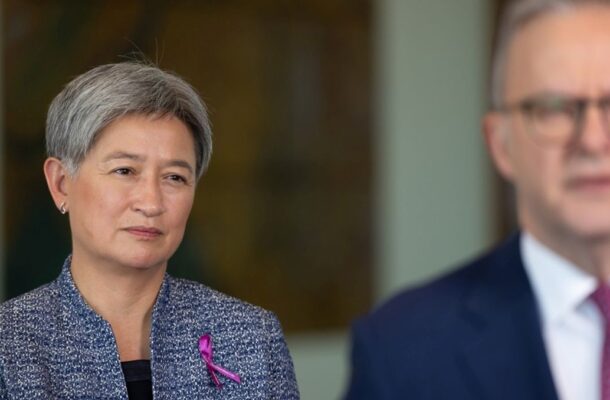The underfunding of Australian diplomacy

Important statistics collected by the Lowy Institute were released recently but little notice has been taken of them. They showed that in the second half of 2023 Australia continued to have only 124 diplomatic posts. This is the second smallest number of diplomatic missions of all G20 countries.
Comparable countries such as the Netherlands had 149, and Canada had 157. Indonesia had 130, South Korea had 187, the US 271, and China 274. Why does this matter?
Diplomats are the official representatives of a country. With weak representation fewer states and peoples will understand us. More significantly, Australian governments will have less available information and analysis of other countries, not only of like-minded governments but also of countries with whom there are tensions.
Further, with less knowledge, misunderstandings and deliberate deceptions are more likely to be generated. Most damaging of all, such gaps can allow misjudgments to flourish, inhibiting dialogue which is essential to preventing conflict.
The number of missions depends on the level of funds allocated for diplomacy to the Department of Foreign Affairs and Trade (DFAT). That share of expenditure has been falling for the last quarter century. Between 1995-96 and 2021-22 the share of Commonwealth funding used for diplomacy was halved.
In 1995-96 diplomacy was allocated 0.38 percent of total Commonwealth spending. By 2021-22 this had been reduced to a tiny 0.19 percent. This doesn’t mean that funds for diplomacy were substantially cut, rather they just weren’t increased when everything else was growing.
Funds for foreign aid were massively reduced over the same period, but defence expenditure grew to 8 percent of total expenditure.
It is difficult to discern why diplomacy has been given such a low priority, but several factors seem to have been influential. One is that conflict prevention and peacebuilding have been neglected. Does this mean that they are regarded as ineffective?
Another is that sometimes diplomats are regarded as decorative and without serious purpose. But the figures for numbers of Chinese and American diplomatic missions show that other countries that matter to us in different ways don’t believe that. They are both known for the vitality of their attempts to influence perceptions about themselves and their capacities.
There has been a growing tendency, especially recently, to regard international relations as principally a military issue. Yet if we do want to be respected then we must maximise opportunities for dialogue.
Detailed knowledge of other countries is vital to our relations with them. Dialogue, mediation, and negotiation between diplomats can substantially reduce tension and conflict, and strengthen peaceful relations.
When Australia was campaigning for election to the UN Security Council in 2011, it became clear that many ambassadors to the UN knew little about Australia. To address this apparent knowledge gap, 100 members from UN member states were invited to visit Australia as guests. Many were astounded at the extent of Australia’s multicultural diversity. Their attitudes and objections changed, and we comfortably won election.
Australia has nominated for re-election to the Security Council in 2028. Election this time will be even more difficult because of the cuts to aid. Joining the regional arms race makes the diplomatic task more difficult, which makes the urgency of improved diplomatic representation more important.
At present Australia doesn’t have sufficient diplomats in the missions in New York and Paris to always send professionals to the UN and OECD committees dealing with conflict and fragility. Student interns are sent instead. Australia must concentrate on improving communication and building trust and cooperation, for which one major factor is the effectiveness of diplomacy.
Before the election, when pressed at the Lowy Institute by the Director Michael Fullilove, Anthony Albanese said that if elected his government would address the shortage of diplomats. It has slowly begun, by allocating an increase of about AUD$100 million in the May 2023 budget and promising equivalent amounts in each of the next three years. Yet it will take even more over several years to build up both the number of diplomats and the training programs essential for addressing both conflicts and development needs.
One of the tragedies resulting from the inadequacies in the number of diplomatic missions and the size of their staffs is that at present there is little attention to peacebuilding within DFAT. The excellent foreign minister, Senator Penny Wong, spoke eloquently about the “the challenge that peacebuilding must meet today” in her address to the Indian Ocean Conference in Perth on 10 February.
She enlarged this by saying “…without ever more active diplomacy the risk of military capabilities being called into service is greater.” And further, “Australia works to maintain the conditions for peace through diplomacy – while playing our part in transparent, collective deterrence of aggression.”
Her words have yet to be implemented. There is no peacebuilding unit within DFAT nor is there a single person with peacebuilding as their principal responsibility.
Wong notes, too, the lack of “concrete mechanisms for averting” violent conflict in our region. These are the principal reasons why diplomacy must be enhanced, multilateral relations strengthened, and peacebuilding organisations such as the UN Peacebuilding Commission and non-government peacebuilding organisations funded.
We want peaceful conflict resolution, not war.
This article was published by the Australian Institute for International Affairs.
John Langmore is a Professorial Fellow in the School of Social and Political Sciences in Melbourne University. He previously represented the electorate of Fraser in the House of Representatives for 12 years. He has also been the Director of the UN Division for Social Policy and Development and National President of the UN Association of Australia.












